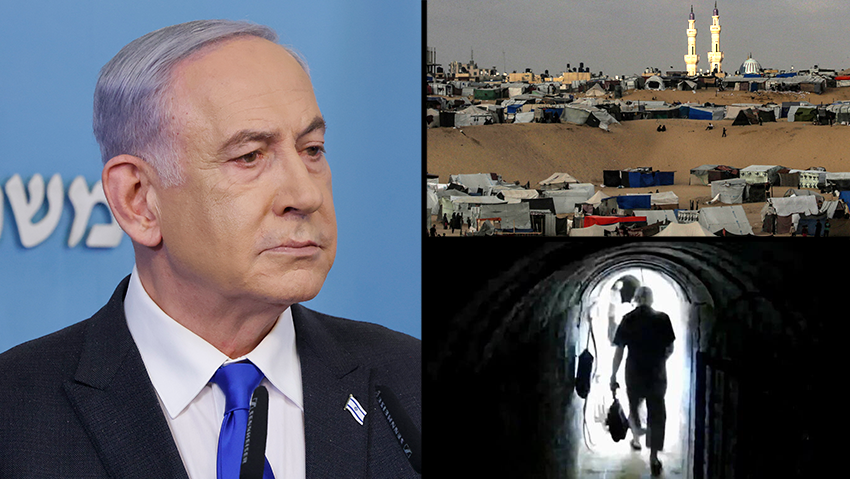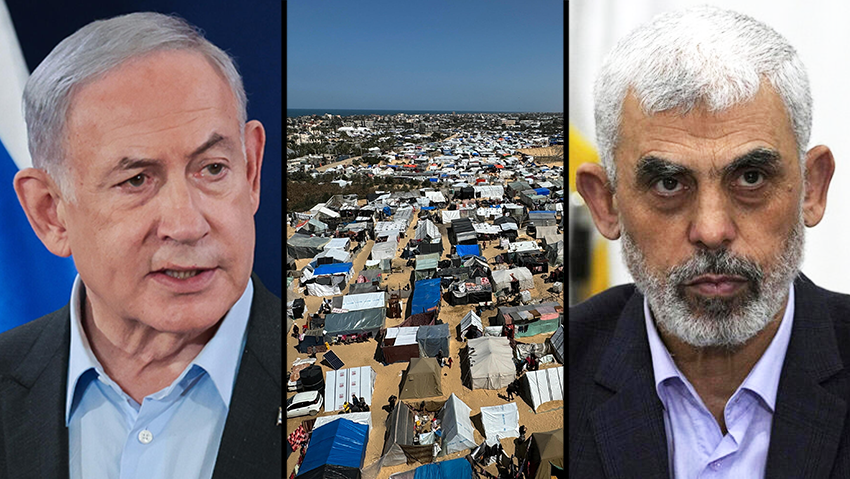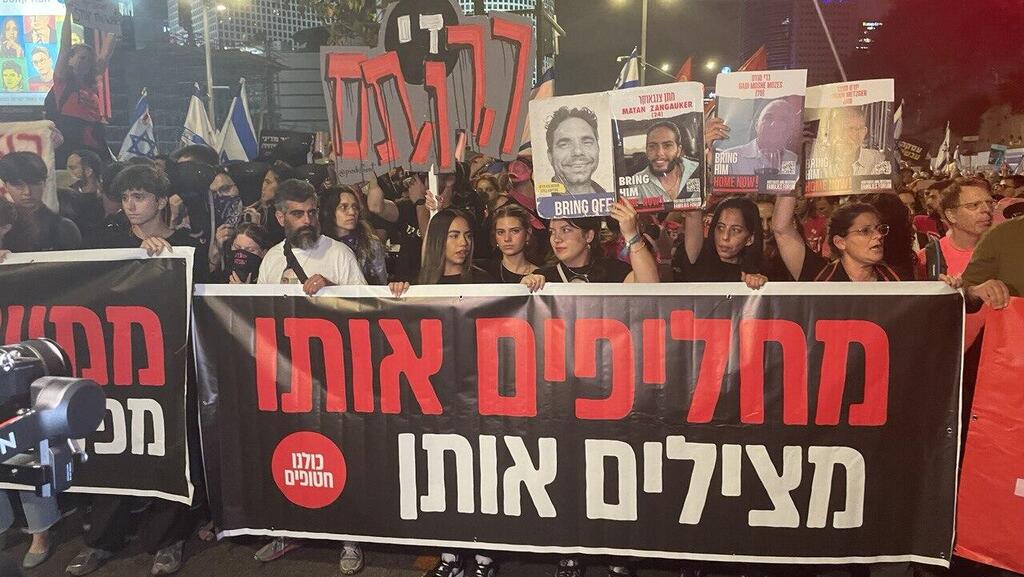Getting your Trinity Audio player ready...
Saudi news outlet Al-Akhbar reported late Saturday Hamas agreed to release 33 Israeli hostages in the first stage of the Egyptian-mediate hostage deal, "contrary to its previous position," during discussions held in Cairo. The report corresponds with other reports published on Saturday according to which the terrorist organization insists on ending the war - but is willing to implement the first stage of the hostage deal even without such an obligation.
3 View gallery


Benjamin Netanyahu, Rafah, Yahya Sinwar escaping IDF via underground tunnel
(Photo: Marc Israel Sellem, AFP, Photo: IDF Spokesperson's Unit)
On the other hand, Al Jazeera quoted a senior Hamas official as saying, "The occupation hinders reaching an agreement by insisting on continuing the war. The Zionist entity seeks a framework for a deal for the release of hostages without linking it to the end of hostilities. There won’t be an agreement that doesn’t explicitly include stopping the war."
Meanwhile, Israeli officials estimate that Hamas' response to the Egyptian proposal for a deal will come soon, but contrary to optimistic Arab reports – the officials didn’t show the same optimism. In fact, the current assessment as expressed by senior officials is extremely pessimistic, suggesting that Hamas won’t return a response that allows significant progress in the negotiations.
Evidence of this may have been given in the report of Qatari network Al-Araby Al-Jadeed that said the discussions that took place Saturday ended "without a final result" and will continue on Sunday - so the terrorist organization won’t publish its official response later tonight.
"The Hamas has questions it wants answers to," the Qatari outlet wrote. "This is done in coordination with all parties. The negative Israeli statements don’t affect the current dialogue in Cairo."
In contrast to the pessimism of Israeli officials, a senior American official said that he "estimates there will ultimately be a hostage release deal." According to him, "There’s a lot of pressure on the Qataris. Hamas released videos of captives, meaning it's clear they don't want Israel to enter Rafah.”
“Hamas thinks they’re winning the war, so they’re trying to raise the price, Bibi [Benjamin Netanyahu’s nickname] has his politics - we're trying to break the cycle. Until now, we've supported Israel's position and we think it's already a fait accompli. Now we're putting pressure on Hamas," he added.
The main controversy surrounding the deal remains Hamas' demand for an Israeli commitment to stop the war. Israel insists on refusing, and while the proposal, according to reports, was intentionally worded delicately and refers to a "stable calm" and not "a permanent cease-fire" - Prime Minister Benjamin Netanyahu said that as far as he’s concerned, and operation in Rafah would take place either way.
Ministers Benny Gantz and Gadi Eisenkot aren’t committed to stopping the war themselves, but Gantz was nevertheless angered by the timing of Netanyahu's announcement - which supposedly could provide Hamas with an excuse to refuse the proposed deal.
3 View gallery


Benjamin Netanyahu, Rafah, Yahya Sinwar
(Photo: Marc Israel Sellem, REUTERS/ Bassam Masoud ,AP)
The current Israeli assessment is that Hamas will refuse the deal, and even if it agrees to it- it will include conditions for Israel to commit to stopping the war and demands regarding the release of terrorists with blood on their hands.
Hamas demands guarantees from the mediators for a cease-fire in Gaza - a demand that Israel refuses to grant, despite reports that the U.S. has given such guarantees. A senior government official said that "it’s reasonable to assume that Hamas' response will be negative, but now everyone will think it's because of Netanyahu and not because of [Yahya] Sinwar – in a decision made by his political interests."
<< Follow Ynetnews on Facebook | Twitter | Instagram | TikTok >>




